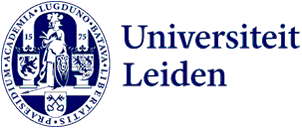Lecture | CHiLL series
Priority modality, scalarity and modal concord in Chinese
- Date
- Wednesday 9 October 2024
- Time
- Serie
- Chinese Linguistics in Leiden (ChiLL)
- Address
-
Lipsius
Cleveringaplaats 1
2311 BD Leiden - Room
- 2.17
Abstract
We are going to present our ongoing work on Chinese conditionals like the following (always doing justice to the fact that we observe considerable inter-speaker variation concerning acceptability of this construction):
(i) Xiwang mei-you shi cai hao.
hope not-exist matter CAI good
lit.: 'Only if [hopefully] nothing is the matter (will it be) good.'
'I hope there will be no trouble.' (Hole 2004:263)
We follow Kaufmann (2017) in calling sentences like (i) conditional evaluative constructions (CECs): highly idiomatized conditionals whose consequent clauses consist of an evaluative predicate -- hao 'good' in (i) --, and which serve to make modal claims. CECs are attested in Chinese (Hole 2004, 2006), Japanese (Kaufmann 2017, Yang 2020), and Korean (Chung 2019, 2020). Both modal flavor and force are modulated by the elements involved. The flavor is determined by the consequent predicate (Hole 2004): in (i), hao 'good' determines a bouletic modal flavor. Our goal is to provide a syntax-and-semantics for Chinese CECs, building on already available analyses like Kaufmann's (2017). A special challenge raised by cases like (i) is the seemingly redundant co-occurrence of xiwang 'hope(fully)' in the antecedent clause and hao in the consequent.
Biographies
Daniel Hole is a professor of general linguistics and linguistics of German at the University of Stuttgart/Germany. One of his areas of specialization is the linguistics of Chinese. His main interests lie with the syntax-semantics interface, often in the realm of information structure. He holds a PhD degree from Freie Universität Berlin and a habilitation degree from Humboldt University Berlin.
Alexander Wimmer received his PhD at the University of Tübingen in 2020. His research interests lie within semantics and pragmatics and include scalar particles, conditionals, attitude ascriptions, and exhaustivity. The languages he has been concerned with include Chinese, German, English, and a bit of Japanese.
